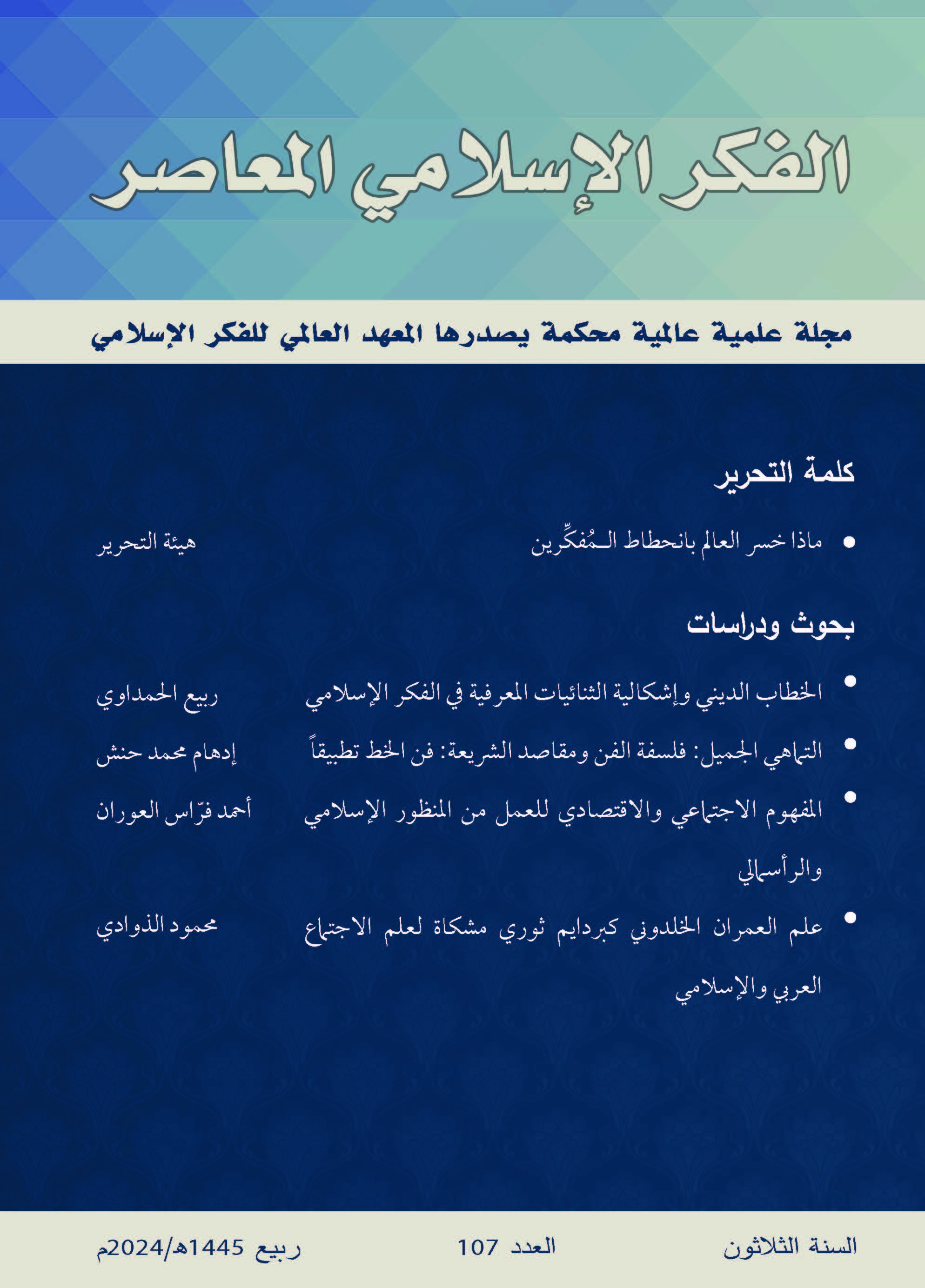Abstract
This study adopts an unconventional perspective of Ibn Khaldun’s pioneering role in establishing the study of civilizational development (ʿumrān). The study of civilization has always been regarded as the fruit of Ibn Khaldun’s experience among the Bedouin and urban communities in North African societies in particular. Ibn Khaldun criticized Arab and Muslim historians for their erratic methodology and analysis of historical events, holding their works to lack credibility. According to Thomas Quinn, philosopher of science, Arab-Muslim historiography was in a crisis during Ibn Khaldun’s time; hence, civilization studies arose as a new paradigm to address this crisis, reorienting historiography from an ordinary discipline to a revolutionary one and inevitably becoming a beacon for modern Arab-Islamic sociology. This study holds that Ibn Khaldun’s thought, namely through the Muqaddimah, revolutionized the relationship between history and sociology, wherein reliable historiography was deemed to necessitate a solid grounding in sociology.

This work is licensed under a Creative Commons Attribution-NonCommercial-NoDerivatives 4.0 International License.
Copyright (c) 2024 المعهد العالمي للفكر الإسلامي





